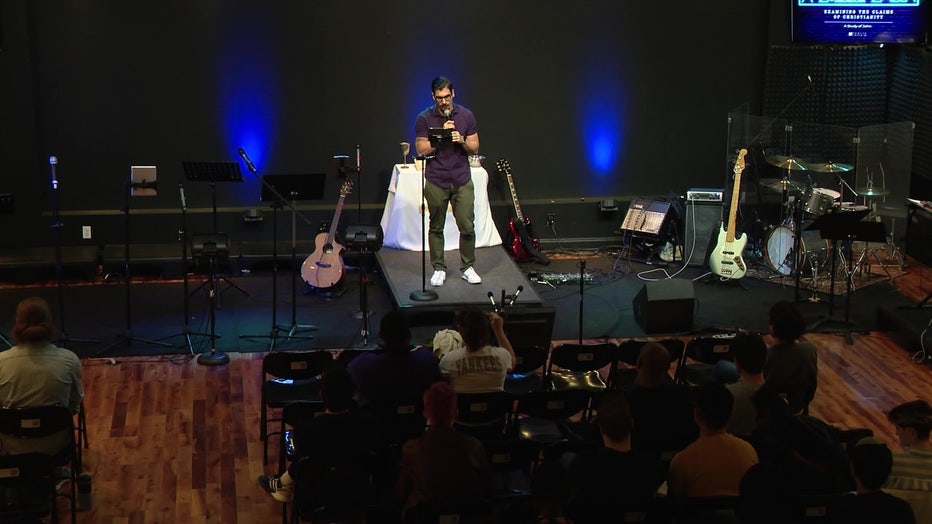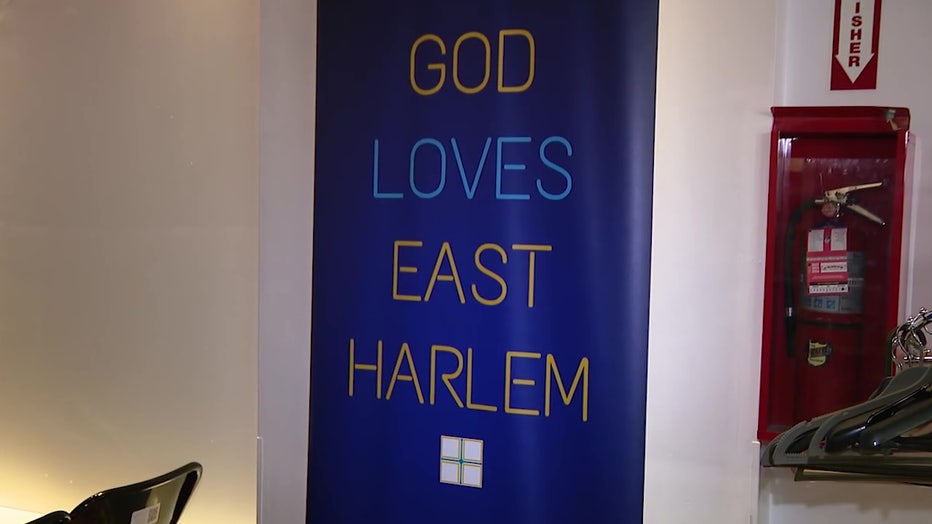Meet the ‘church planters’ keeping the faith while also tackling issues
‘Church planters’ keep the faith while also tackling issues
FOX 5 NY's Sharon Crowley has the story.
EAST HARLEM, N.Y. - Pastor Justin Adore opened Redeemer East Harlem in the fall of 2019. This relatively young church is not fancy. Sunday services happen in a large event hall above a laundromat on East 116th Street in East Harlem.
"We want to be about both knowing the love of God and Christ and also showing the love of God and Christ," he explained.
This kind of "church planting" has become more and more popular with faith-based worshipers looking for alternatives to traditional churches.
"Church planting has become the thing to do the last 15 years," explained Reverend Elizabeth Rios, the founder and president of Passion2Plant. "Church planting basically means that we're going into communities, and we're bringing the Gospel to new areas."

The Passion2Plant network trains its "planters" to start justice-oriented churches in underserved communities.
Rios focuses on helping Black and brown pastors plant churches.
"Most of these church-planting networks are led by white males. Some of the issues that are going on, on the ground in urban communities are not on their radar," she continued.
Professor Lloyd Mayer, a law professor at Notre Dame University, says church planters are entitled to the same federal and state tax breaks or benefits as any traditional church.
However, church planters like other religious institutions must prove legitimacy.
"They can't disqualify you because you are an independent organization that's not affiliated formally with any other religious group," Mayer explained. "They would maybe have to ask, ‘Well, do you sincerely believe your religious beliefs?’ And that's all the government can ask. They can't say, ‘We think your beliefs are ridiculous,’ right? They can't say that you really believe them. And are you using the property to further those beliefs? And particularly, do you have a congregation? You have regular gatherings on the property. A church is not just a religious organization, but a religious organization that has a primary function of having believers gather together to worship to pray and engage in sacraments and so on."

Pastor Adore his wife and children hope to make a difference here in East Harlem.
"Genuinely, our dream is to be a church that really becomes known as being good news for our community."
He wants to grow his congregation and improve the lives of those who live in neighborhood – planting a church that grows roots in this community.
LINKS:
- Redeemer East Harlem: www.reh.nyc
- Passion2Plant network: www.passion2plant.com

